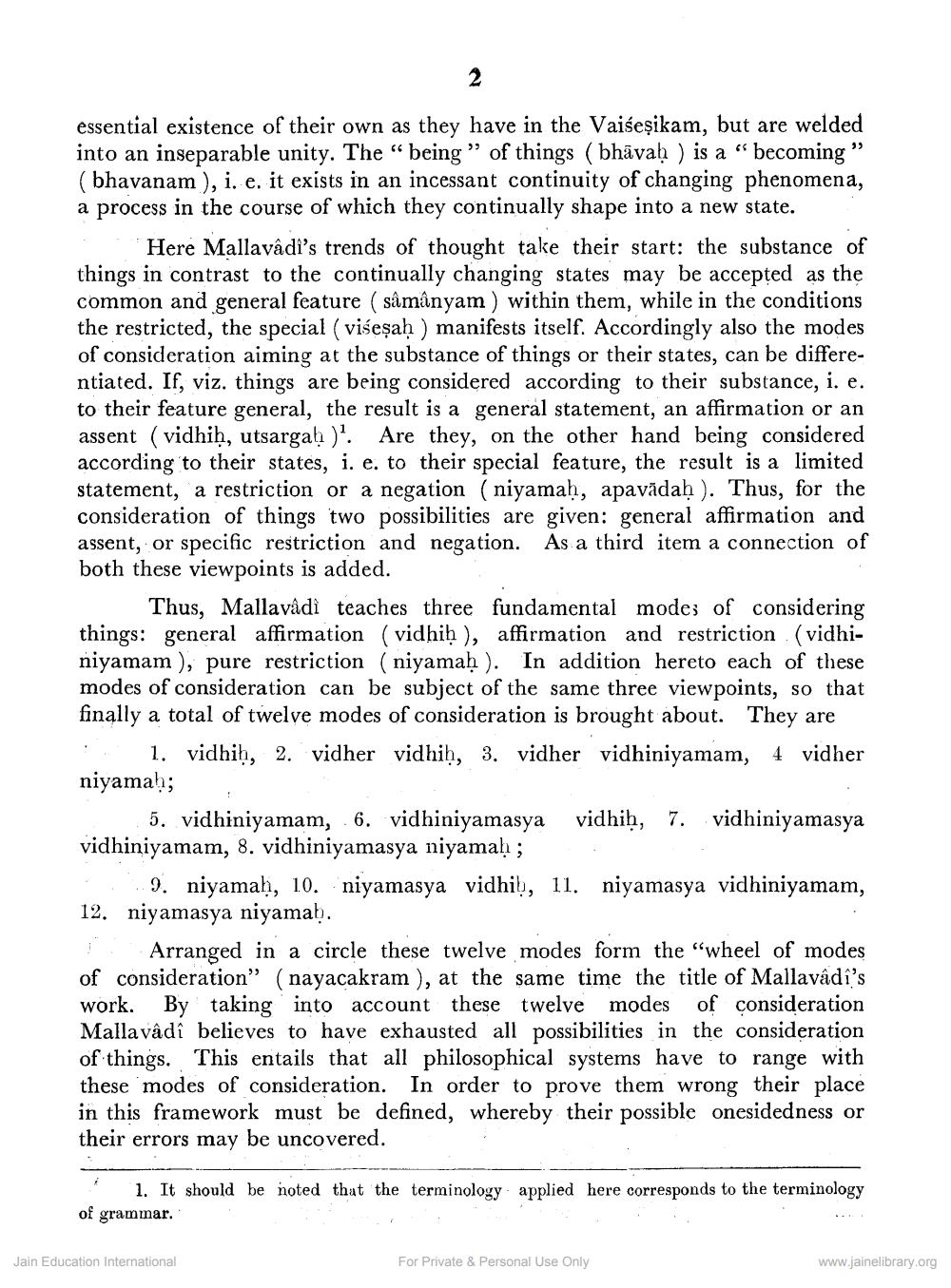________________
essential existence of their own as they have in the Vaišeşikam, but are welded into an inseparable unity. The “ being” of things (bhāvaḥ ) is a " becoming" (bhavanam ), i. e. it exists in an incessant continuity of changing phenomena, a process in the course of which they continually shape into a new state.
Here Mallavâdi's trends of thought take their start: the substance of things in contrast to the continually changing states may be accepted as the common and general feature ( sâmânyam ) within them, while in the conditions the restricted, the special (višeşah ) manifests itself. Accordingly also the modes of consideration aiming at the substance of things or their states, can be differentiated. If, viz. things are being considered according to their substance, i. e. to their feature general, the result is a general statement, an affirmation or an assent (vidhiḥ, utsargah)? Are they, on the other hand being considered according to their states, i. e. to their special feature, the result is a limited statement, a restriction or a negation (niyamah, apavādah ). Thus, for the consideration of things two possibilities are given: general affirmation and assent, or specific restriction and negation. As a third item a connection of both these viewpoints is added.
Thus, Mallavådî teaches three fundamental modes of considering things: general affirmation (vidhih), affirmation and restriction (vidhiniyamam ), pure restriction (niyamaḥ). In addition hereto each of these modes of consideration can be subject of the same three viewpoints, so that finally a total of twelve modes of consideration is brought about. They are : 1. vidhih, 2. vidher vidhiḥ, 3. vidher vidhiniyamam, 4 vidher niyamah;
5. vidhiniyamam, 6. vidhiniyamasya vidhiḥ, 7. vidhiniyamasya vidhiniyamam, 8. vidhiniyamasya niyamah;
9. niyamaḥ, 10. niyamasya vidhib, 11. niyamasya vidhiniyamam, 12. niyamasya niyamah.
Arranged in a circle these twelve modes form the "wheel of modes of consideration" (nayacakram ), at the same time the title of Mallavâdî's work. By taking into account these twelve modes of consideration Malla vâdî believes to have exhausted all possibilities in the consideration of things. This entails that all philosophical systems have to range with these modes of consideration. In order to prove them wrong their place in this framework must be defined, whereby their possible onesidedness or their errors may be uncovered.
1. It should be noted that the terminology applied here corresponds to the terminology of grammar.
Jain Education International
For Private & Personal Use Only
www.jainelibrary.org




